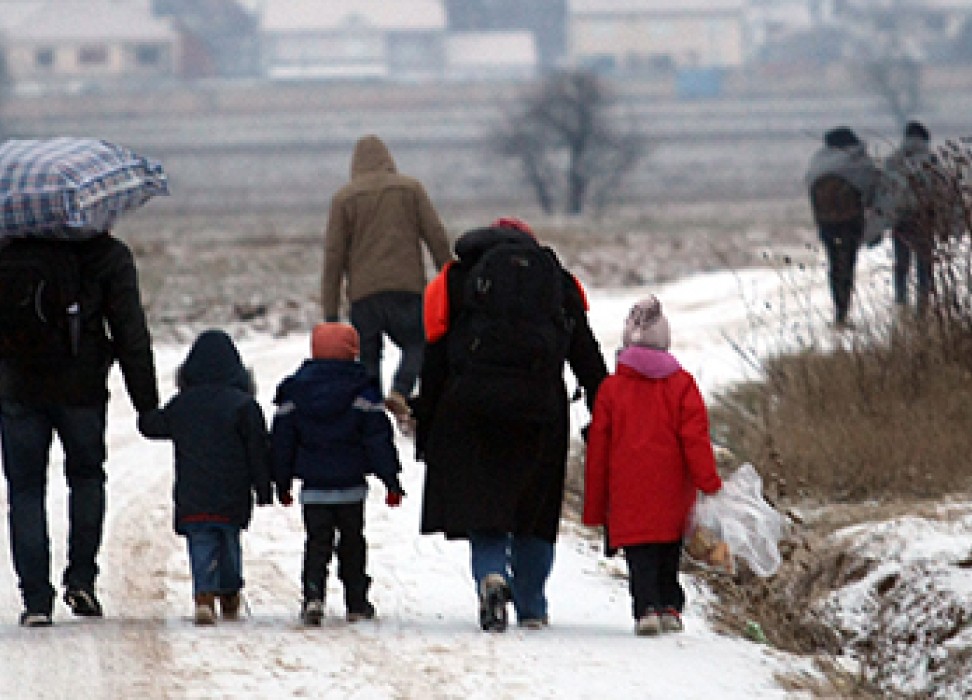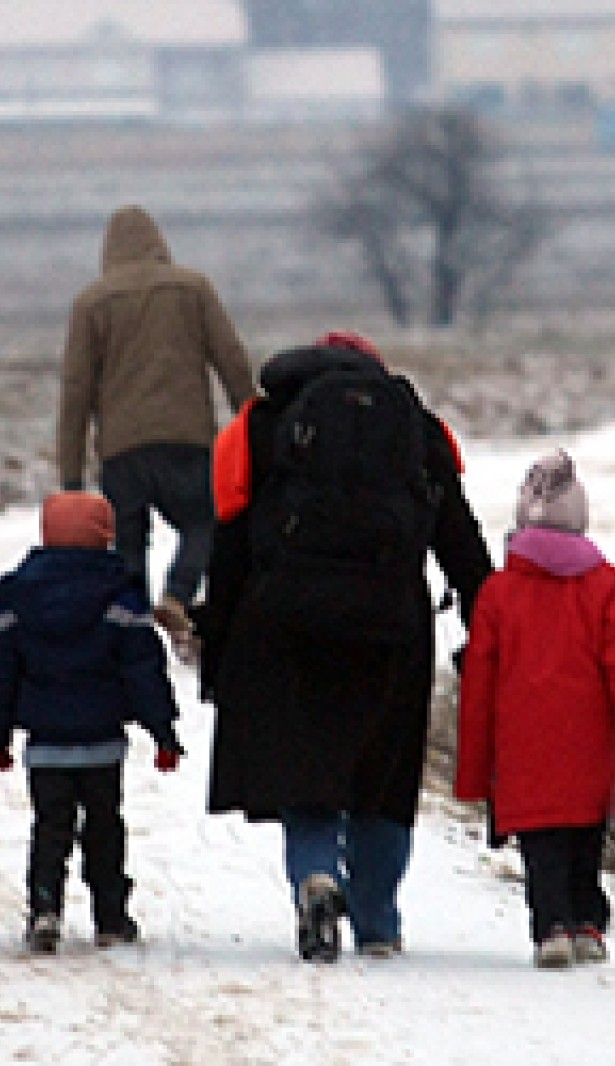Towards a global compact on migration
17 May 2017

As a newcomer in Switzerland, Latif Alabdullah, 25, wants the usual things most new arrivals anywhere hope to find: decent housing, a good job, a chance to make a fresh start. Since arriving in Geneva 18 months ago, he has waited for an answer to his asylum application and worries about what could happen if his application is rejected. Alabdullah’s Syrian passport would leave him no option but to return to Syria, where he would be required to do military service, or pay an “army fee” he could not afford, or go to jail for failing to do either.
While he waits for the decision of immigration authorities, Alabdullah has lived in a foyer, or boarding house, for migrants and asylum seekers and, more recently, in a studio apartment, with the assistance of Hospice Général , a social service assistance program of the City of Geneva. While he continues his job search, Latif works as a volunteer with Thrive, a local community organization that provides employment assistance to migrants and refugees seeking work, offering interview skills training and matching job seekers with prospective employers.
“We help migrants and refugees integrate by providing training in interviewing skills and coach them in general social skills for presenting themselves and interacting with Swiss employers and colleagues in a work setting,” Alabdullah said at a side event during a recent discussion among UN Member States in Geneva to discuss migration policies and the human rights of migrants.
The two-day gathering was the first in a series of informal thematic sessions aimed at reaching a Global Compact for safe, orderly and regular migration in 2018. The agreement would put in place human rights-based migration policies to help counter discrimination, xenophobia and intolerance against migrants and to promote the inclusion of migrants in host countries and communities.
“The migration narrative is all too often grounded in myth, fear, and prejudice, ignorant of facts, data and evidence, and deeply offensive to our shared values of human rights and equality,” Craig Mokhiber, who oversees migration issues at the UN Human Rights Office, said at a panel discussion during the intergovernmental talks.
So-called ‘irregular’ migrants – those who enter, stay or work in a country without the necessary authorization – often confront deep-seated prejudice and intolerance, and are increasingly vulnerable to border control policies that increasingly favour detention and returns. As xenophobic populism gains ground in many countries, migrants are being turned back at borders, detained without due process, and confronted with hostility from authorities and the public.
“We don’t use the words ‘migrant’ or ‘refugee’ in our workshops, or when talking to prospective employers, because as soon as you use that label it automatically cuts us out of the community and puts us on the sidelines,” said Alabdullah. “People look down on you and assume all kinds of things about you – like you’re an outsider, or you don’t speak the language. We try to tell people we’re just like anybody else who is looking for a job.”
The Global Compact would build on core international human rights treaties and the Universal Declaration of Human Rights to uphold the human rights of all migrants, regardless of their migration status.
“Simply put, all migrants are entitled to the full range of human rights guaranteed under these universal instruments,” said Mokhiber.
The Special Rapporteur on the human rights of migrants, François Crépeau, emphasized the opportunity for States to engage in the Global Compact discussions to improve migration governance with long-term strategic planning aimed at facilitating migration and mobility and protecting the human rights of all migrants.
“The unprecedented number of cross-border movements has resulted in increased deaths and violence at borders and at every stage of the migratory process over the past few years,” Crépeau told Member States. “Such events have clearly shown that the status quo in the approaches of States to border control and migration is not sustainable.”
Despite the long wait for his asylum papers, Alabdullah remains hopeful. “I would like to have a stable life, a job, and not live anymore with the threat of being sent back,” he said. “All is want is to stay in one place, where I can feel safe, and where I can say‘this is home’.”
Join our ‘Stand Up’ campaign to counter xenophobia and negative perceptions about migrants – share your own story about how you are standing up to defend migrants’ rights:
http://www.standup4humanrights.org/en/take-action.html
17 May 2017



